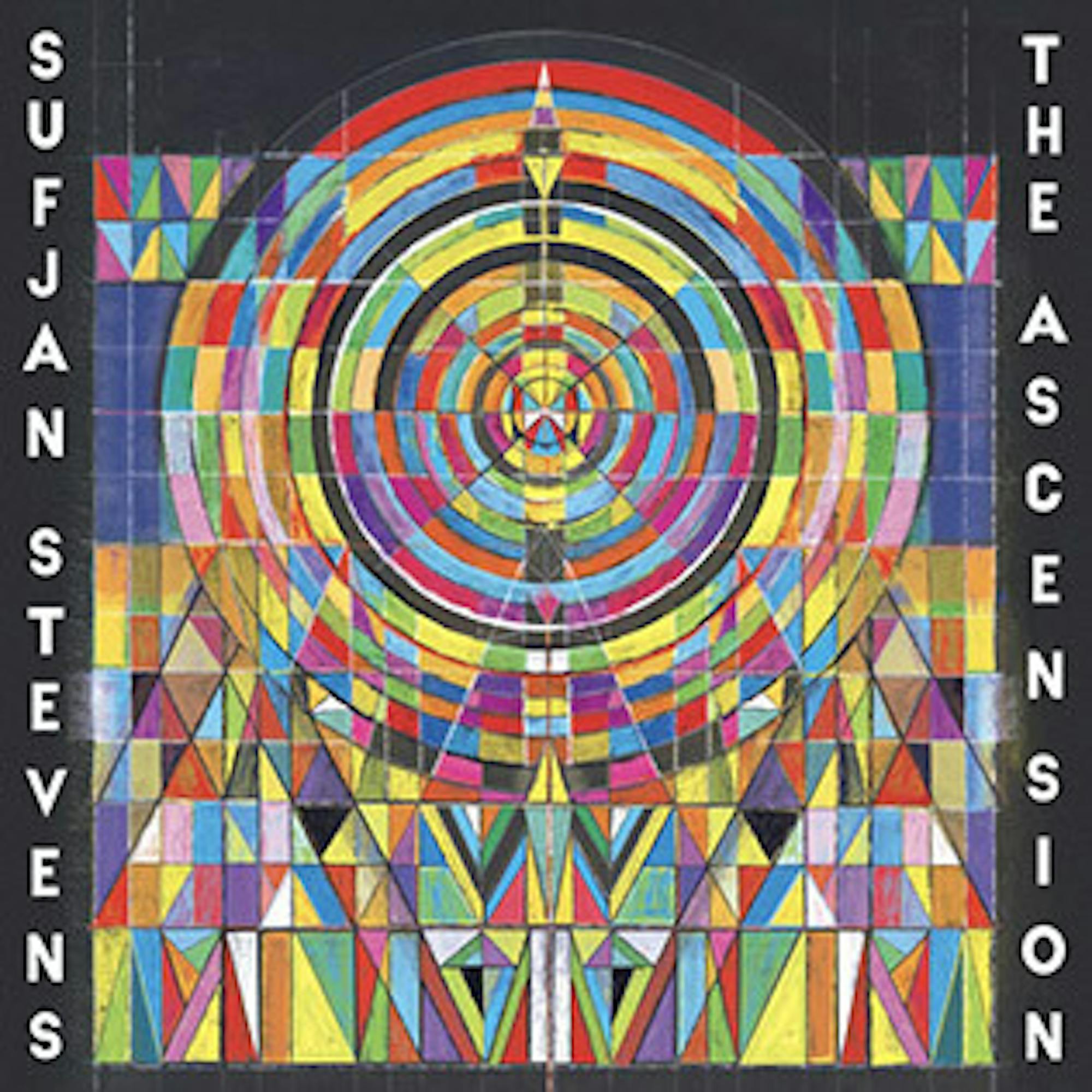Content warning: This article discusses self-medication
Even after a 20-year career, Sufjan Stevens isn’t slowing down. Since his first solo release in 1999, Stevens has dropped eight solo albums, 13 extended plays, three compilation albums and three collaborative albums. He’s gained nothing short of a cult following in the last two decades within the indie community, as well as briefly breaking into the mainstream following the release of “Call Me By Your Name” (2017). Stevens received Oscar and Grammy awardnominations for his song "Mystery of Love" (2017), featured in the film’s soundtrack. With a mass of devoted fans and critical success behind him, his most recent album release, "The Ascension" (2020),has large shoes to fill.
So, does the 15-track record live up to the expectations that Stevens’ past work has set? Not quite.
That’s not to say that the album is severely lacking, or is objectively “bad” by any means. "The Ascension" is a heart-wrenching, complex, synth-pop collection of Stevens' ruminations on human nature, love and watching the world burn around him. However, Stevens has already proven that he’s capable of much more than “enjoyable.” His album “The Age of Adz” (2010) proved that Stevens has an incredible mastery over balancing intimate poeticism with invigorating electronic beats to create an emotional, sonically pleasing masterpiece. "The Ascension"doesn’t quite reach the same caliber as "The Age of Adz." Thus, it's difficult to appreciate "The Ascension"for what it is.
Regardless, there is much to be celebrated in Stevens’ newest release. “Ativan” is some of Stevens’ best work in years. The track begins with a melancholy ambience. There is a hint of exhaustion in Stevens’ voice, apt for the tone of the song. His voice rises as he begs “Is it all for something? Is it all part of a plan?/ Tranquilize me, sanitize me, Ativan,” before delving into a manic electronic post-chorus. The melody and lyrics have a captivating grimness; his vocals are beautiful while he makes unnerving lyrical allusions to self-medication and Buffalo Bill from “The Silence of the Lambs” (1991).
Another high point is “America,” the lead single off "The Ascension." The song is a cerebral masterpiece. The track hauntingly crescendoes over the span of seven minutes, before fading into another five minutes of ambient sound. It's a critical musing on Stevens’disillusionment with the United States. The song is a protest song in the conventional sense, but doesn’t make the mistake of posturing itself as something more revolutionary than it is. The lyrics of "America" are genuine and evocative, which help make the song a highlight of the album.
Unfortunately, the same cannot be said about “Video Game."This synth-pop track laments the superficiality of social media, referring to social media as a “video game.” The idea of social media being bad isn't exactly a groundbreaking topic, nor is it addressed in a way that no one else has addressed it before. Stevens’ lack of nuance in the lyrics is frustrating; the chorus, “I don't wanna play, I don't wanna play (I don't wanna play)/ I don't wanna play your video game” leaves much to be desired, especially from a man who’s built a career on lyrics that comprise of poetic biblical allusions and emotional revelations. The song is redeemed in its simple but infectious beat; regardless of lyrical shallowness, it's a fun, sonically pleasant track.
Despite the shortfalls of "Video Game," there are no other notable “low” points on the album. Each song is well crafted and has some nugget of emotional wisdom to take from it.
There is also a pleasant thematic cohesiveness that holds "The Ascension"together. The themes of loss of faith and disillusionment seen in “America,” “Video Game” and “Ativan” are maintained throughout the album. Some songs are hopeful, some are hopeless, some are desperate and some are all three at once. “Tell Me You Love Me,” the fifth track on the record, opens with the lyrics, “My love, I’ve lost my faith in everything/ Tell me love you me anyway," sung over a slow drum beat with a gentle synth melody. Over the four minutes of the song, Stevens shifts from his sad pleading to bright, repeated cries of “I’m gonna love you every day," while revelrous harmonies swell behind him.
Since the album is so thematic (which is not abnormal for Stevens, as seen in his past fondness for concept albums), it is best listened to in full. Hearing Stevens’ shifting attitude about his loss of faith in the world and mankind between songs is one of the best features of the album. His meditations ride a roller coaster of different emotions, and one can best appreciate "The Ascension" when they ride that roller coaster alongside him.
Again, the album itself is strong, and doesn't fall flat in many areas, save for some disappointing lyrics. The melodies are well constructed and beautiful, and Stevens' vocals are consistently enjoyable. However, it simply lacks the resounding greatness of his past work. The only fault of Stevens was making such good albums so early in his career; anything not up to par with these triumphs can't help but fall a little flat.






